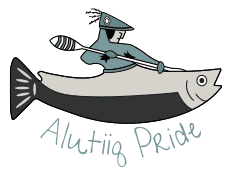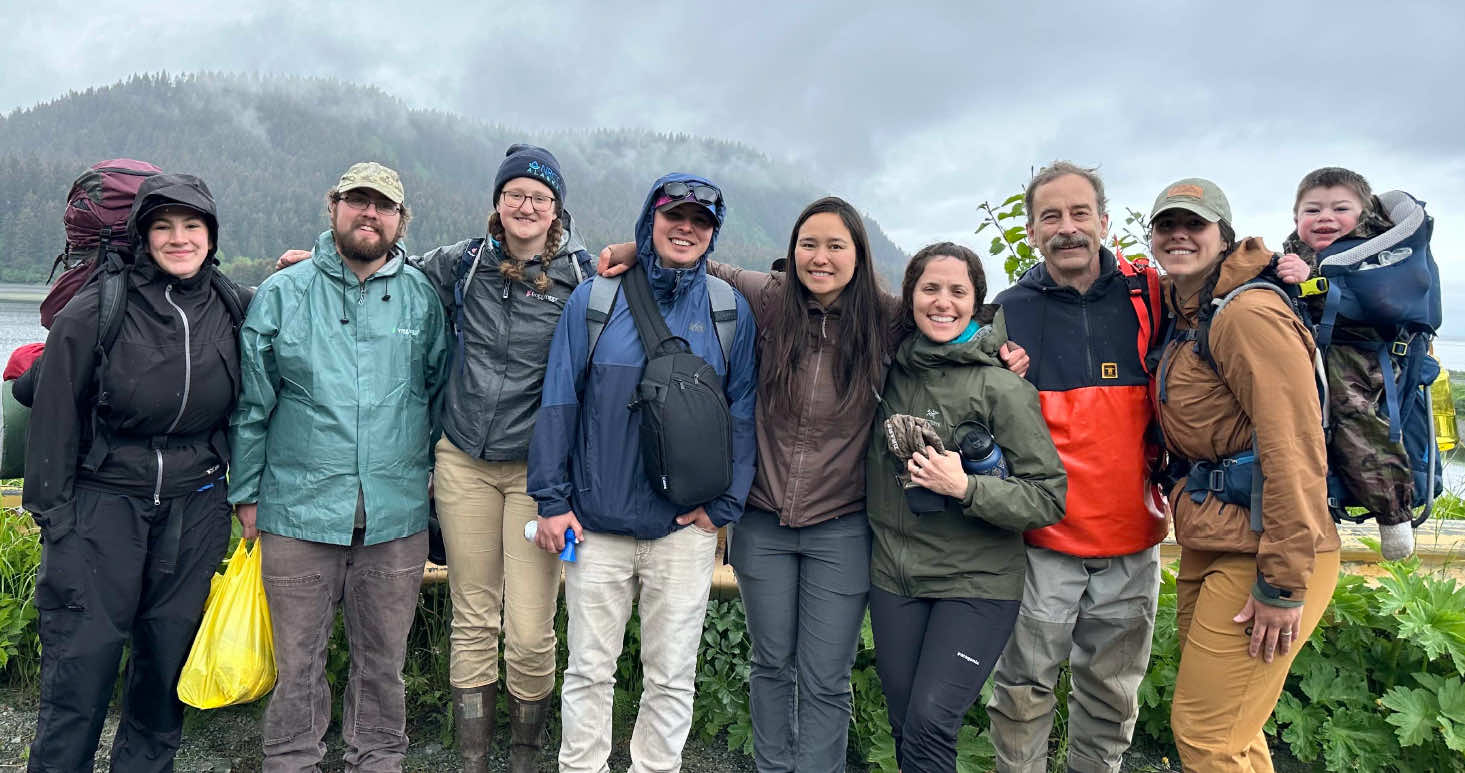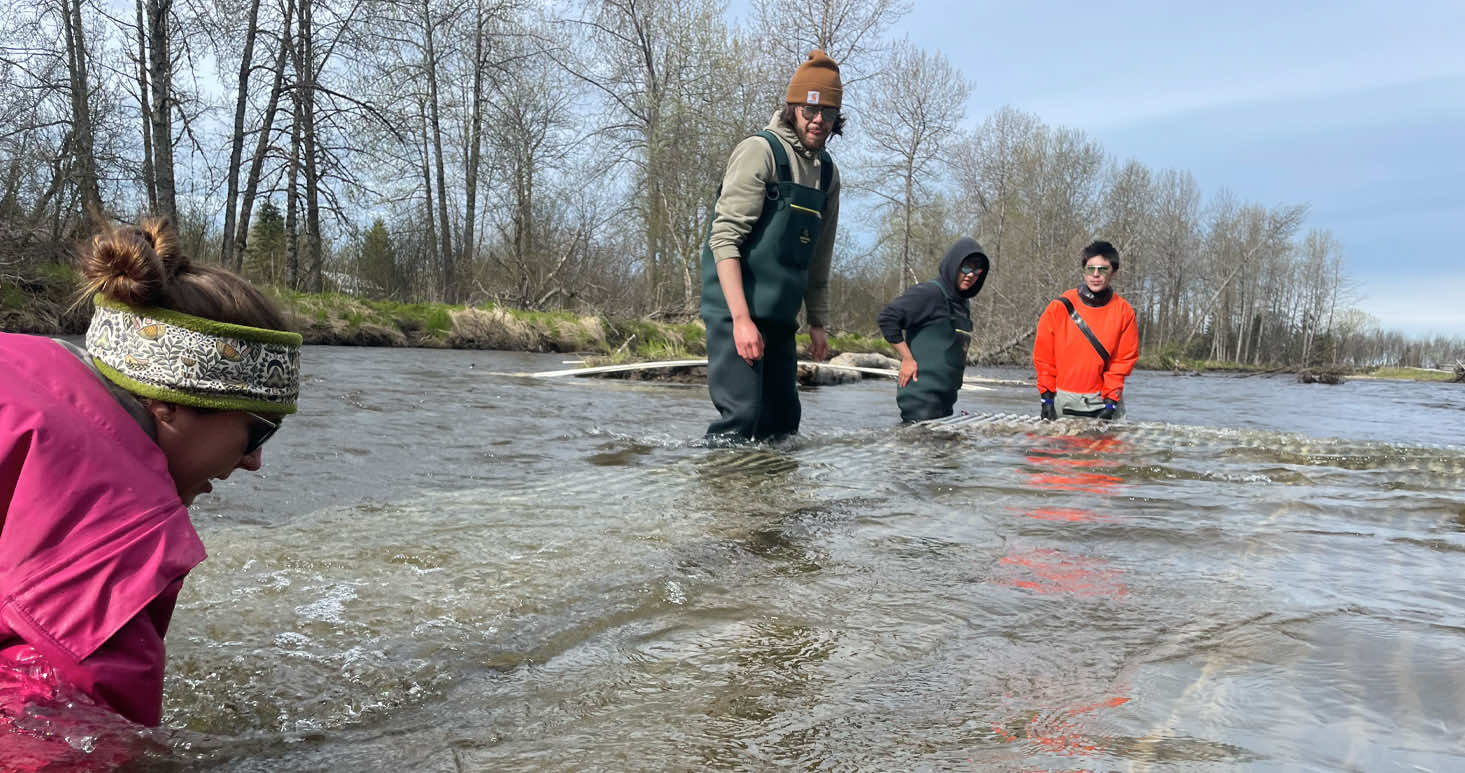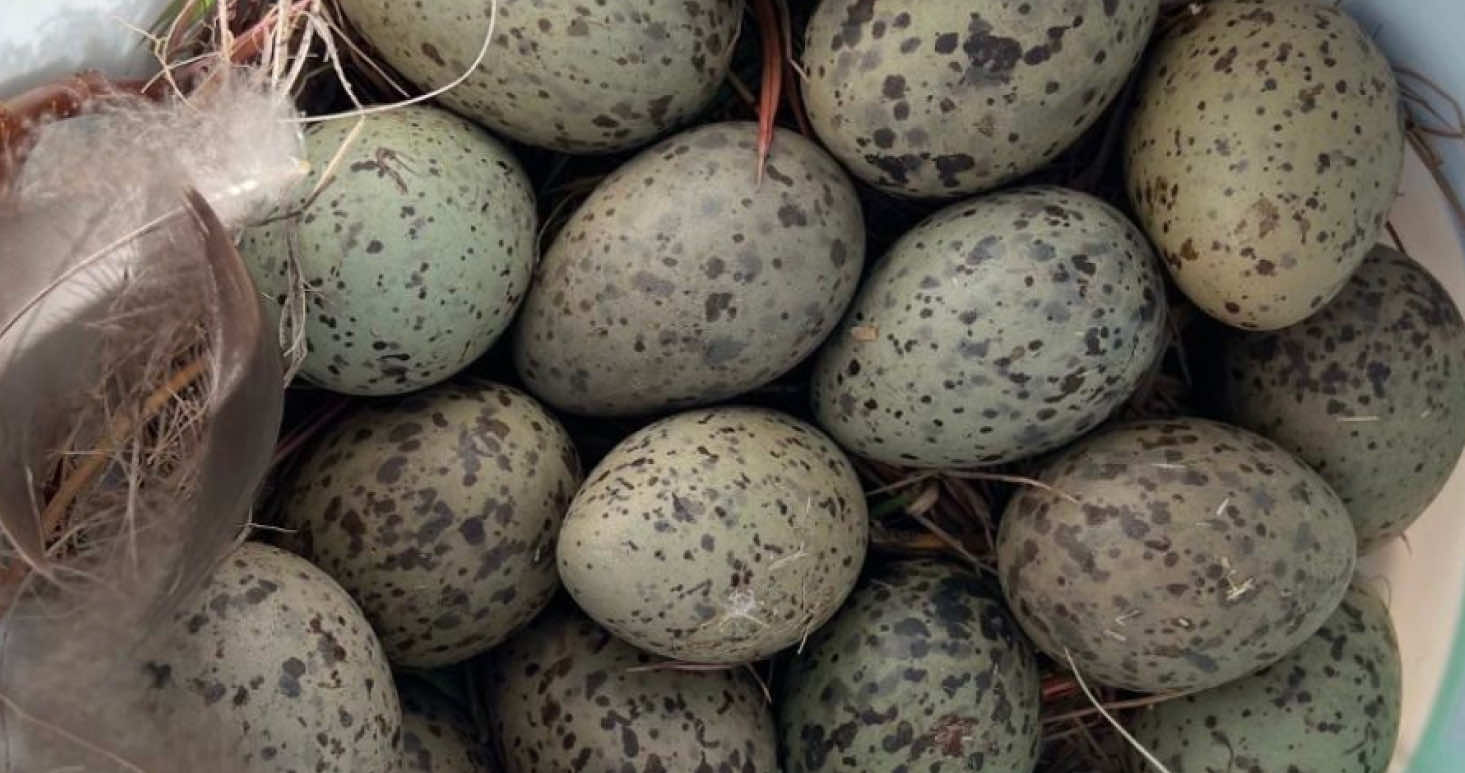CRRC 2019 Q1 Newsletter

Quarterly Update
CRRC has been busy these last few months! Take a look below to see what staff have been up to. We also include other regional and noteworthy news.

CRRC has a new Board Member, Nanci! In addition to becoming CRRC’s newest Board Member, she is Tatitlek’s Village Chief. Nanci Lee Robart is the newest member of the Board of Directors, joining in 2018. Nanci comes to The Tatitlek Corporation Board as a shareholder and daughter of the late Chief Gary Kompkoff. She is a Behavioral Health Aid and Community Health Representative with Chugachmiut, an organization which provides health, social services, education and training to the Chugach Native people.”

CRRC is excited to welcome our newly hired Executive Assistant, Arielle “Tusalviq” Baines. Arielle will be assisting Executive Director, Patty Schwalenberg.
Arielle is Inupiaq and a NANA shareholder. She was born in Kotzebue and grew up in Kotzebue and Nome, Alaska graduating from Nome Beltz Jr./Sr. High School. She is the daughter of Jim Jorgensen and Marilyn Jorgensen, previously Thomas. Her paternal grandparents are Dana Sherman and the late Trygve Jorgensen of the NANA region. Her maternal grandparents are Robert Hykes of California and Lillian Monson of Kotzebue. Her and her 3 children who are 4th and 3rd generation half Inupiaq on her father and mother’s side respectively are; Daniel (Utmagook)-9, Judah(Ikaluk)-7, and Christine(Sagauruq)-4, and they have resided in Anchorage since 2011.
To contact her, email: .
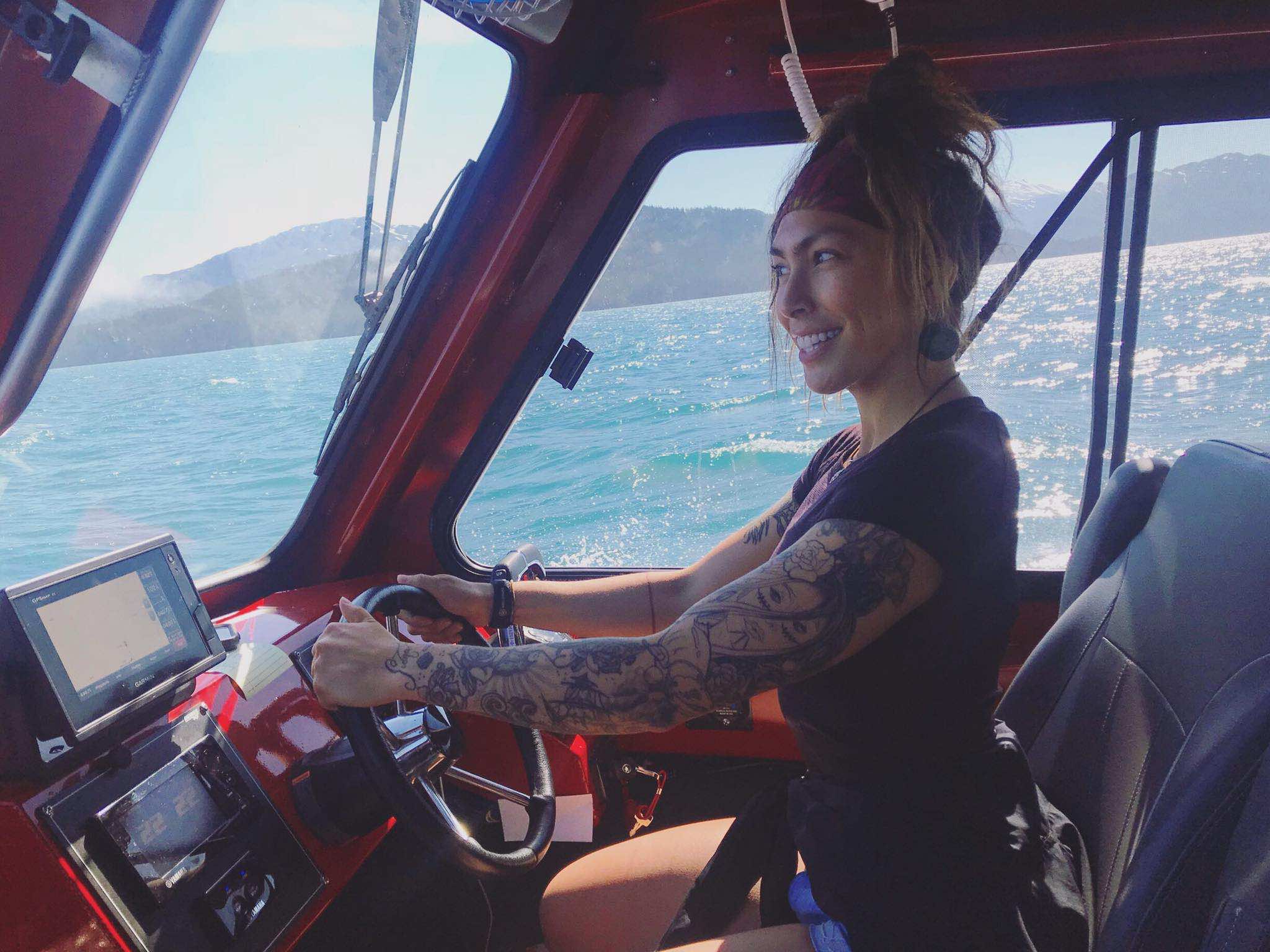
It is with deep regret that we bid a fond farewell to Tanya Pipkin, CRRC’s Executive Assistant for the past five years. We have always counted on Tanya to share her unique insight from a traditional Alutiiq perspective into many CRRC projects and programs, resulting in services that are culturally relevant and steeped in tradition. She has been an integral part of the USFWS-CRRC Teaching Cadre, sharing her experiences and expertise with students attending the USFWS Alaska Native Relations Training course. Most importantly, she was the point of contact for the elders who serve as consultants during the training. Tanya made sure the elders were always well cared for, indicating how important they are to her and Alaska Native culture. She took very good care of the CRRC Board, ensuring their travel and other needs were met during CRRC events. She always came to work with a smile on her face, and even in the most stressful of days, she exuded calm and control. Tanya will be continuing her life’s journey with a trip to India to study Yoga, after which time she hopes to incorporate yoga and other healthy lifestyles in the Chugach communities. We wish you well, Tanya. Please know that you will always be in our thoughts and prayers. We wish you well in your future endeavors!

CRRC has sponsored a course titled: Introduction to the Board of Game. It is being offered in conjunction with the UAF Interior-Alaska Campus Tribal Management Program.
Course Description: This in-person course will be held in conjunction with the Board of Game regular Southcentral meeting.This course will supply: an introduction to the operations of the Board of Game,review of proposals effecting Southcentral hunting regulations in Alaska,and methods of providing effective testimony.
Dates: March 13-16,2019 (Wednesday, Thursday, Friday ,Saturday)
Time: 9:00am – 5:00pm, each day
Location: Sheraton Hotel Anchorage, Boardroom 311 (third floor) 401 E6th Ave Anchorage, AK 99501
More inform at ion at : tribal.uaf.edu/ crse/bg
Cost Options: $60 (2 Credits-Reduced Tuition) or $0 (Non-credit)


The Alutiiq Pride Shellfish Hatchery in Seward is thrilled to be assisting graduate student, Marina Washburn on her experiment on the effects of climate change on Alaskan clams. Washburn conducted her experiment over the course of a month this past summer at the Alutiiq Pride Shellfish Hatchery in Seward. Operated by Chugach Regional Resources Commission, an inter-tribal fish and wildlife nonprofit organization, the hatchery is the site for some of Alaska’s most cutting-edge research on ocean acidification. Read more.

A multi-disciplinary group of researchers are embarking on a 3-year study to look at the influence of tipping points on salmon fisheries in the Gulf of Alaska. The project was developed in response to the keen desire of Alaska stakeholders to better understand the potential consequences for salmon, and will involve stakeholder engagement, data synthesis, ecological-economic modeling, and an assessment of pre-emptive adaptation planning and policy-making. The project was funded by NOAA’s Ocean Acidification Program. Stay tuned for a project website coming soon.
Project partners:
bird harvest prohibitions

From left, AMBCC Executive Director Patty Schwalenberg, ADF&G Commissioner Sam Cotten, USF&WS Alaska Director Greg Siekaniec and AMBCC Native Caucus co-chair Gayla Hoseth with the apology letter. (Photo courtesy of Alaska Migratory Bird Co-Management Council)

Three individuals from the Alaska Tribal Health System were recognized with awards for their impactful work serving Alaska Native and American Indian people in the IHS Alaska Area. Read more by clicking here.
One of CRRC’s Board Members, Robert Henrichs from the Native Village of Eyak was awarded and we wanted to send our heartfelt congratulations to Bob!
Mr. Henrichs has served on the Native Village of Eyak Tribal Council as its president for more than 20 years. He started the annual Sobriety Celebration and Memorial Potlatch, which changed Tribal views on living a sober life. He negotiated bringing Indian Health Service funds from the local hospitals into the Tribes. He successfully submitted a Health Resources and Services Administration primary care grant to hire doctors and behavioral health providers. He currently serves on the Alaska Native Tribal Health Consortium Board of Directors and continues to advocate for increased collaboration between Tribal and City health in Cordova, Alaska.”

This report is the product of the Climate Action Leadership Team (CALT), a broad stakeholder group created by Administrative Order 298, issued in October 2017. The report contains solid recommendations for mitigating climate change impacts and causes in Alaska. The report is divided into six separate sections: Communities and Partnerships, Human and Ecosystem Health, Economic Opportunity, Clean Energy, Outreach and Education, and Investment.

Check out this newly-published update on the state of ocean acidification in Alaska.
November 2018
What is the Network?
The Alaska Ocean Acidification Network was developed to expand the understanding of OA processes and consequences in Alaska, as well as potential adaptation strategies and mitigation actions. The network helps connect scientist and stakeholder communities to identify knowledge gaps, recommend regional priorities, share data, and determine best practices for monitoring in Alaska. The Alutiiq Pride Shellfish Hatchery is a strategic partner. Read more here.
